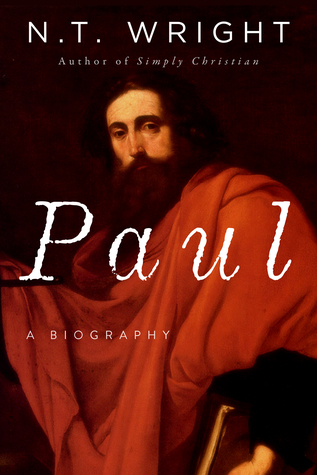More on this book
Community
Kindle Notes & Highlights
The story of Israel, starting with Abraham himself, had always been, and in Saul’s day was seen to be, the start of a rescue operation,
He raises his eyes to see the one he has worshipped and served all his life . . . And he comes face-to-face with Jesus of Nazareth.
His lifelong loyalty was utterly right, but utterly misdirected.
This was a public announcement, like a medieval herald or town crier walking through the streets with a bell, calling people to attention and declaring that a new king had been placed on the throne. This was, indeed, how the word “gospel” would be heard right across the Roman world of the day: as the announcement of a new emperor.
Start with the scriptural story, place the crucified and risen Jesus at the climax of the story, and the meaning, though unexpected and shocking, is not in doubt.
Jesus was Israel personified; but he was also Israel’s God in person.
Connecting the dots of Paul’s journeys, actual and planned, is like mapping a royal procession through Caesar’s heartlands.
they must have seemed to many onlookers like a strange messianic variation on the Pharisees’ movement, coupling a fierce loyalty to Israel’s One God with their own belief, as yet perhaps comparatively inarticulate, that the One God had revealed himself in and as the crucified and risen kingdom-bringer, Jesus himself.
it would have taken a bold maverick to suggest that there might be forms of loyalty in which Israel’s ancestral traditions, focused on the Torah, would not play a central role.
If Paul was really saying that God had made a way through the problems that Moses had left behind him—that now they could be “justified” from all the things that were still a problem under Moses3—then this was basically saying that the Torah itself could be set aside.
Perhaps, indeed, that is what “holy scripture” really is—not a calm, serene list of truths to be learned or commands to be obeyed, but a jagged book that forces you to grow up in your thinking as you grapple with it.
if God has declared, in the resurrection, that the crucified Jesus really was and is the Messiah, then God is also declaring that Moses could only take them so far.
The living God had acted in person, in the person of Jesus, to rescue people from that “present age” and to launch “the age to come.” The two ages were not, as it were, back to back, the first stopping when the second began. The new age had burst upon the scene while the “present age” was still rumbling on.
God had not promised Abraham two families, a Jewish one and a non-Jewish one—which is what would have been implied by Peter’s behavior at Antioch, where Jewish and non-Jewish Jesus-followers were to eat at separate tables.
Paul’s exorcism of the girl (an initially “religious” problem) quickly translated into loss of income (an economic problem), and this was turned, vengefully, into the accusation that Paul and Silas were Jews (an ethnic problem) who were teaching customs that it would be illegal for Romans to practice (a political problem).
things that made people think he was mad or blaspheming, but that then appeared to carry a life-changing power of their own.
In particular (a point Paul will develop in the second letter) apostles are precisely not supposed to be people of great standing in the wider community. They are like bedraggled prisoners at the end of a triumphal procession, on their way to a shameful death. That is part of the point, but it is also the source of the power.
His next topic is a very different, and very difficult, issue: meat that had been offered in sacrifice in pagan temples. In a city like Corinth, that meant almost all meat available for purchase, since temples functioned effectively as a combination of butcher’s shop and restaurant. A sacrificial animal was brought in and offered in worship to this or that deity, and then the family enjoyed the meal.
He is “under the Messiah’s law”; he is “in the Messiah.” The Messiah’s people, as he says in a climactic passage in Galatians, have died; they have left behind the old identities and have come into a new identity, the messianic identity.38 That is part of why the gospel is “a scandal to Jews,” but of course it nonetheless makes sense only within a deeply Jewish, and now messianic, view of the world.
But it must mean—it can only mean—that when Paul goes to dinner with non-Jewish friends, he will eat whatever they put in front of him.39 What would then make the difference is “conscience”—not Paul’s, but that of anyone else who might be offended, who might be led back into idolatry.
Love is the present virtue in which believers anticipate, and practice, the life of the ultimate age to come.
He is not saying, “I’ve decided to move from my old house to a nicer one down the road.” He is saying that his own home has been taken over by the architect who built it in the first place and that it is now being rebuilt around him.
If this was real—if it wasn’t just a grandiose idea in his head—it had to work on the ground.
Slavery in the ancient world did, more or less, everything that is done in our world by oil, gas, or electricity, everything that we accomplish through our technology.


